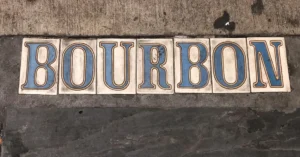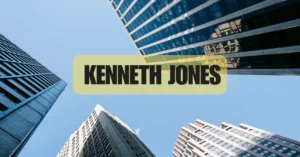On a quiet Tuesday morning, Jane Morrison’s phone rang. She glanced at the screen: 2489040311. No name, no location, just a string of ten numbers from an unfamiliar area code. Like many Americans, she let the call go to voicemail. Nothing was left.
It wasn’t the first time.
“I’ve seen that number three times this week,” Jane later said. “Sometimes early in the morning. Sometimes at night. It’s unsettling.”
Across the United States, reports of mysterious numbers—particularly ones like 2489040311—are climbing. Are they robocalls? Scam attempts? Or just benign businesses with outdated caller ID systems?
This article investigates the phenomenon through a wider lens: exploring the anatomy of unknown phone calls, what numbers like 2489040311 might represent, and how ordinary people can reclaim control over their digital presence.
READ MORE: 30 Days With My School-Refusing Sister: A Journal of Friction, Compassion, and Discovery
The Age of the Unrecognized Number
In 2025, it is estimated that over 55 billion robocalls will be placed in the U.S. alone. That’s roughly 150 million calls per day, or nearly one per person.
Behind this tidal wave of noise are algorithms, spoofing tools, and networks of fraudsters exploiting inexpensive VoIP technology, all wrapped in the façade of normalcy—a local number, an official-sounding recording, or a cryptic silence.
Understanding the 248 Area Code
The number 2489040311 appears to originate from Michigan’s 248 area code, which includes parts of Oakland County and the Detroit suburbs. While this might suggest local ties, it’s essential to note that spoofing—masking a number’s true origin—can make a scammer look like they’re calling from next door.
As a result, area codes no longer offer trustworthy clues. The key lies in recognizing patterns and knowing what steps to take when numbers like 2489040311 repeatedly appear.
Why Am I Getting Calls from 2489040311?
If you’ve seen 2489040311 on your screen multiple times, you’re not alone. Calls from such numbers generally fall into several categories:
- Robocalls: Automated messages that may promote services or claim to be from government agencies.
- Phishing Scams: Callers pretending to be banks, tech companies, or law enforcement, fishing for personal details.
- Debt Collection or Survey Bots: Sometimes legitimate, but often aggressive and poorly regulated.
- Silent or “One-Ring” Calls: Designed to get you to call back, which may trigger international toll charges.
In Jane’s case, returning the call led nowhere—a disconnected tone followed by dead silence.
The Business of Harassment: Why Numbers Like 2489040311 Keep Calling
Robocalls and number spoofing have become an industry in themselves. Operators, often located overseas, use automatic dialing systems that cycle through millions of number combinations. Once a number like yours responds or engages, it may be tagged as “active,” leading to more calls.
Who Gains from This?
- Scammers: Steal data, money, or access to your device.
- Data Brokers: Harvest call response behavior and sell it to marketers.
- Shady Agencies: Use ambiguous legal cover to conduct “polls” or “customer service” inquiries, often selling collected insights.
Your number can land on these lists through data breaches, sign-ups on unsecured websites, or even contests with buried fine print.
How to Investigate a Number Like 2489040311
If curiosity or concern drives you to look up a number, here’s how to proceed safely:
- Use Reputable Reverse Lookup Tools: Sites like TrueCaller, Hiya, or your mobile carrier’s security tools can help.
- Check for Patterns: If others report the number as spam, it likely is.
- Never Call Back Randomly: This can validate your number or trigger unexpected charges.
- Report the Number: Use the FTC’s Do Not Call Registry or report to the FCC.
Silence as a Strategy: The Best First Response
Experts recommend ignoring unknown numbers unless you’re expecting a specific call. If the caller is legitimate, they will likely leave a voicemail or follow up via another channel.
Still, the impact of frequent calls from numbers like 2489040311 isn’t always benign. For some, it causes anxiety, productivity loss, and even fear—particularly among elderly users or those with past experiences of phone scams.
Technological Defense: Tools to Shield Yourself
You’re not helpless. While no system is foolproof, here are tools that offer robust protection:
- Carrier-Based Protection: Verizon’s Call Filter, AT&T’s Call Protect, and T-Mobile’s Scam Shield.
- Third-Party Apps: Nomorobo, RoboKiller, and TrueCaller block known spam numbers.
- Device Settings: On iOS and Android, you can silence unknown callers altogether.
- Two-Number Strategy: Use a public-facing number for forms and registrations and a private one for personal use.
Many of these tools now use AI to recognize call patterns, flagging suspicious numbers like 2489040311 automatically.
The Psychology of Unknown Calls
Unwanted calls are not merely technical nuisances—they affect people emotionally. According to a 2024 Pew Research study, 42% of Americans feel nervous or anxious when receiving an unknown number. The fear of missing something important—an emergency, a job offer, a relative—is real.
But the industry thrives on that fear. Scammers exploit it with emotionally charged messages:
“Your bank account has been locked.”
“You owe back taxes.”
“A package is waiting for confirmation.”
All of which may arrive from a number like 2489040311.
Tracing the Digital Fingerprint
Can you ever really find out who is behind 2489040311?
The short answer: rarely, unless law enforcement gets involved. Spoofed numbers often point to temporary or virtual lines, routed through layers of anonymity.
However, larger patterns do get tracked. Federal agencies use machine learning and crowdsourced reports to identify major scams. In some cases, entire call farms have been shut down—but usually only after major damage is done.
What Should You Do if You Answer?
If you accidentally answer a call from a number like 2489040311, here’s a simple checklist:
- Do not provide any information.
- Hang up if there’s a delay—it often signals a bot is connecting you.
- Do not say “Yes”—recordings can be manipulated for fraud.
- Block the number and report it immediately.
- Monitor your bank and email for unusual activity if you suspect you were targeted.
Legislation and the Future of Robocall Control
In 2025, the U.S. continues implementing the TRACED Act, which forces carriers to adopt STIR/SHAKEN protocols—caller ID authentication frameworks. While helpful, their effectiveness is limited by loopholes, international boundaries, and the adaptability of scam networks.
A Digital Literacy Moment
Calls from numbers like 2489040311 aren’t just a nuisance. They are a modern challenge to digital literacy. Just as we teach email hygiene (“don’t click unknown links”), the same must now apply to voice communications.
Empowering the Public
- Teach family members, especially elders, not to engage with unknown calls.
- Support regulation that punishes telecoms for lax enforcement.
- Normalize ignoring calls from unidentified numbers.
Conclusion: What 2489040311 Really Represents
The number 2489040311 is a symbol—not just of one unwanted call, but of a broader digital threat. It represents a system that has failed to evolve as quickly as the technology driving it. While you may never know exactly who’s behind that call, understanding why it exists—and how to protect yourself—is the first step toward reclaiming control.
FAQs About 2489040311 and Unknown Calls
1. What is the number 2489040311 associated with?
The number 2489040311 often appears as a potentially suspicious or spoofed call number, typically linked with robocalls or scams.
2. Can answering calls like 2489040311 lead to fraud?
Yes, engaging with scam calls may lead to phishing or financial fraud, especially if personal data is shared.
3. Is it safe to call back numbers like 2489040311?
No. Calling back may confirm your number is active or connect you to costly international services.
4. How can I block or report such numbers?
Use your mobile device settings or apps like RoboKiller. You can also report numbers to the FTC or FCC.
5. Why do scam calls use local area codes like 248?
Using local codes increases the chance you’ll answer, thinking the call might be from a known or nearby contact.









